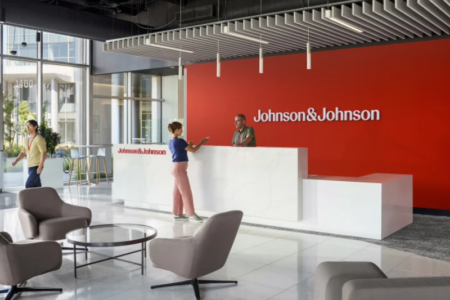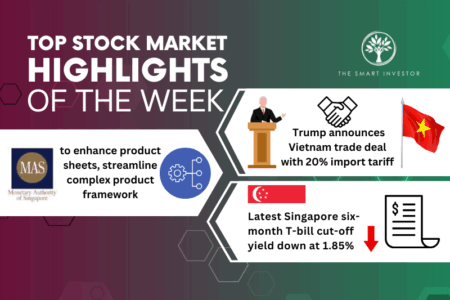Japan is the world’s oldest country boasting the highest proportion of senior citizens.
As of 2020, 28.2% of the country’s population is over the age of 65.
Researchers from the American Economic Association found that a 10% increase in the percentage of the population aged 60 and above leads to a 5.5% decrease in the gross domestic product (GDP) per capita.
Additionally, with declining birth rates, it is estimated that by 2035, senior citizens will constitute one-third (33%) of Japan’s total population.
This demographic trend may deter some investors, given that an ageing society can slow economic growth down.
Furthermore, a declining population can reduce the consumption of goods and services, posing challenges for corporate earnings.
However, this demographic shift can present other types of investment opportunities.
In this article, we identify a few industries and companies that are well-positioned to benefit from Japan’s demographic changes.
For investors interested in investing in the Japanese market, this article should serve as a useful guide.
Automation and robotics
The manufacturing sector in Japan is huge, consistently generating between US$800 billion to US$1 trillion in goods annually over the past four years.
The sector contributes approximately 20% of Japan’s annual GDP.
One critical component of manufacturing is labour.
Japan’s ongoing labour crisis has put significant pressure on the manufacturing sector.
In response, the government recently expanded its foreign worker visa programme for certain manufacturing industries.
Automation and robotics play a crucial role in addressing the nation’s labour shortage crisis.
Japan currently has the highest density of robots per manufacturing employee globally, as the country accelerates its transition towards automation.
Furthermore, Japan is a global leader in the automation and robotics industry, responsible for manufacturing or designing 45% of all industrial robots worldwide.
Given the trend of ageing populations around the world, the importance of the automation and robotics industry is expected to rise.
Here are two companies that manufacture robots and help to increase automation and efficiency for other businesses.
Fanuc Corp (TYO: 6954)
Fanuc is a manufacturer of industrial robots, with a key focus on factory automation.
The company is a pioneer in the field of Numerical Controls (NCs) under factory automation, an automatic technology that uses a computer program to control mechanical tools.
Apart from NCs, Fanuc has expertise in other technologies such as robots and Robomachines.
The company is most known for its yellow robot industrial arm, which can be found in many factories worldwide.
In fiscal year 2023 (FY2023), Fanuc reported ¥795.3 billion in total revenue, marking a 6.7% year on year decrease.
The company’s net profit tumbled by 21.9% year on year to ¥133.2 billion.
The underperformance in 2023 can be attributed to a significant slowdown in manufacturing in Asia due to China’s patchy economic situation.
This impact was reflected in Fanuc’s earnings, with sales in China, Japan, and other parts of Asia all experiencing year on year declines.
Revenue from China fared the worst, plunging by over 30% year to year.
While the outlook in Asia was challenging, performance in both Europe and the Americas was much better, with year-on-year revenue increases for both regions.
Despite the tough macro environment, Fanuc was still able to generate a positive free cash flow of ¥117.9 billion.
For fiscal year 2024 (FY2024), Fanuc anticipates both top and bottom lines to fall.
This outlook is due to persisting production issues from inventory adjustments and other uncertainties such as the depreciating yen.
Despite these headwinds, Fanuc is still expected to retain its leadership in the global industrial automation market.
Being an automation specialist, Fanuc’s factory is naturally highly automated, allowing one-third of its employees to focus on researching and developing competitive machinery.
Lastly, the company is also a reliable dividend payer.
Fanuc adheres to a policy of paying out 60% of its net income as dividends.
For FY2023, the annual dividend was reduced to ¥84.14 from ¥107.13 in the previous year.
Daifuku (TYO: 6383)
Daifuku is a global leader in material handling equipment and logistic systems, allowing manufacturers and businesses to move products quickly and efficiently within their factories and warehouses.
Though Daifuku operates primarily as a business-to-business (B2B) company, its products significantly impact our daily lives.
For example, the conveyor belts in airports or the machines used for baggage security screening are usually manufactured by Daifuku, which has more than 500 such installations worldwide.
Similarly, the logistics behind Uniqlo’s apparel are managed using Daifuku’s solutions.
Daifuku has partnered with Fast Retailing (TYO: 9983), the owner of Uniqlo, with the goal to fully automate Fast Retailing’s warehouses in Japan and abroad.
For FY2023, Daifuku achieved a record net sales of ¥611.4 billion, a 1.6% year on year increase.
Net profit also saw a modest rise by 4.2% year on year to ¥45.4 billion.
Additionally, the operating margin improved from 9.8% in 2022 to 10.2% in FY2023, signalling a solid financial year for Daifuku.
Despite these gains, orders received during FY2023 declined by over 15%, from ¥737.4 billion to ¥620.3 billion, largely due to early pre-orders placed in late FY2022.
Daifuku also generated a positive free cash flow of ¥7.5 billion yen.
The annual dividend for FY2023 is ¥40 a share, up from the previous year’s ¥36.7 a share.
However, looking ahead to FY2024, Daifuku plans to lower its payout to ¥37.
Healthcare
With Japan’s ageing population, there is a natural expectation for an increase in the demand for healthcare services.
According to research done by Mitsui & Co (TYO: 8031), total long-term healthcare costs are expected to increase from ¥10.5 trillion in 2020 to ¥13.4 trillion in 2030.
Healthcare REITs in Japan can act as a stable and safe investment for investors.
Healthcare & Medical Investment Corp (TYO: 3455)
Healthcare & Medical Investment Corp (HCM) is a healthcare REIT that owns a variety of healthcare-related properties, including several nursing homes, serviced housing, and a rehabilitation hospital.
HCM owns a total of 53 properties, predominantly located in Tokyo and the Kinki region, which encompasses two major cities in Kyoto and Osaka.
All 53 properties have a full occupancy rate, indicating strong demand for their services.
For the second half of FY2023, the REIT reported a decline in operating revenue to ¥2.4 billion, an 8% year on year decrease.
Operating profit also experienced a significant reduction, falling by 17.9% year on year to ¥1.3 billion.
HCM declared a distribution per unit (DPU) of ¥3,235, lower than the previous year’s ¥3,557.
The REIT expects to maintain the same distribution of ¥3,235 for the first half of FY2024.
Currently, the REIT’s trailing 12-month distribution yield stood at 5.1%.
Get Smart: Opportunities galore
The ageing population trend is not unique to Japan. Many countries worldwide, including Singapore, are also experiencing this ‘silver tsunami’.
Japan offers a wealth of investment opportunities as it has many companies that cater to the automation and healthcare themes.
If you are looking for more investment opportunities to safeguard your portfolio, consider exploring this article that features other promising stocks.
We have just revealed the top 7 US tech stocks poised for remarkable growth. In today’s fast-paced market, betting on these giants could mean more money in your pocket. With a focus on solid fundamentals and innovative prowess, these selections should earn a place in your portfolio. Click here to grab your FREE report now and start investing in the future, today.
Follow us on Facebook and Telegram for the latest investing news and analyses!
Disclosure: Aw Kai Rui does not own any of the stocks mentioned in this article.





